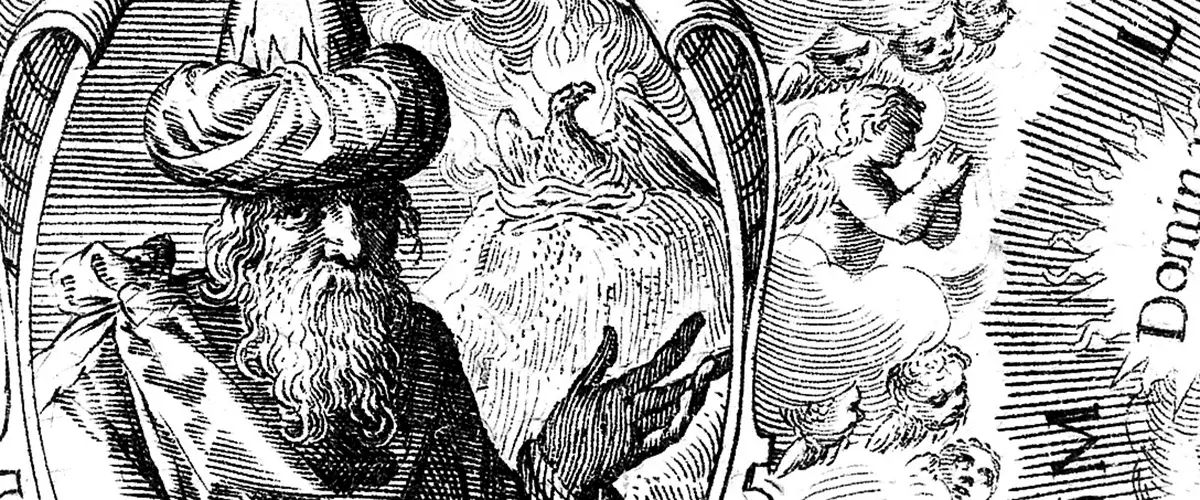What is Hermeticism?
Hermeticism is a religious and philosophical tradition involving a set of beliefs and practices based on the teachings of the mythical figure Hermes Trismegistus. The tradition emphasises the unity of all things, the divine nature of the human soul, and the attainment of spiritual enlightenment through the use of alchemy, astrology, and other esoteric practices.
Hermeticism has had a significant influence on Western esotericism and occultism, and its ideas have been incorporated into various religious and philosophical movements throughout history.
What are the origins of Hermeticism?
Hermeticism has its origins in Hellenistic Egypt during the 1st century AD. It was influenced by a fusion of Greek, Egyptian, and Jewish philosophical and religious traditions, as well as the cultural and intellectual developments of the time.
The tradition is named after Hermes Trismegistus, a mythical figure who was said to have been a great teacher and philosopher, and whose teachings were recorded in a collection of texts known as the Corpus Hermeticum. These texts, which were written in Greek, contain a mix of philosophical, religious, and mystical ideas, and emphasise the unity of all things, the divine nature of the human soul, and the pursuit of spiritual enlightenment through the use of alchemy, astrology, and other esoteric practices.
Hermeticism spread throughout the Mediterranean world in the centuries following its emergence in Egypt, and had a significant influence on the development of Western esotericism and occultism.
Hermetic practices
Hermeticism includes a variety of practices that are used to achieve spiritual transformation and connect with the divine. Some of the key practices are:
Alchemy: This is the practice of transforming base metals into gold, which is seen as a metaphor for transforming the self into a higher, more spiritual state. Alchemists use a variety of techniques, such as distillation, calcination, and fermentation, to purify and transform substances.
Astrology: This is the practice of interpreting the positions and movements of the stars and planets to gain insight into human affairs and to understand the nature of the divine. Astrologers use various charts and symbols to interpret astrological phenomena and make predictions.
Theurgy: This is the practice of using rituals and prayers to communicate with the divine and to achieve spiritual transformation. Theurgy involves invoking spiritual beings or entities and using various techniques, such as visualization and meditation, to connect with them.
Divination: This is the practice of using various tools, such as tarot cards, runes, or the I Ching, to gain insight into the future and to understand the nature of the divine. Diviners use various techniques, such as reading symbols or interpreting patterns, to interpret the messages they receive.
These practices are often seen as ways of accessing hidden knowledge or hidden aspects of the self, and of transcending the limitations of the material world. Through these practices, Hermetic practitioners seek to gain insight into the nature of the divine and to achieve a higher level of consciousness and spiritual awareness.
Influence of Hermeticism on Western esotericism and occultism
Hermeticism has had a significant influence on Western esotericism and occultism. The Corpus Hermeticum and other Hermetic texts were rediscovered and translated in the Renaissance, and their ideas had a profound impact on the development of Western thought. Below are mentioned some of the ways in which Hermeticism has influenced Western esotericism and occultism.
Alchemy
The practice of alchemy, which is closely associated with Hermeticism, became an important part of Western esotericism and occultism. Alchemists believed that by transmuting base metals into gold, they could also transform the self and achieve spiritual enlightenment.
Rosicrucianism
The Rosicrucian movement, which emerged in the 17th century, was influenced by Hermeticism and incorporated many of its ideas and practices. The Rosicrucians believed in the unity of all things and sought to achieve spiritual transformation through the use of alchemy, astrology, and other esoteric practices.
Freemasonry
Freemasonry, which emerged in the 18th century, also drew on Hermeticism and other esoteric traditions. Many of the symbols and practices of Freemasonry are derived from Hermeticism and other mystical traditions.
Theosophy
Theosophy, which emerged in the 19th century, was heavily influenced by Hermeticism and other esoteric traditions. Theosophists believed in the unity of all things and sought to achieve spiritual transformation through the use of meditation, visualisation, and other practices.
Modern occultism
Hermeticism has continued to influence modern occultism, including practices such as ceremonial magic, divination, and tarot. Many modern occultists continue to draw on Hermetic ideas and practices to explore the nature of the divine and to achieve spiritual transformation.
Who are some of the famous people associated with Hermeticism?
Since Hermeticism is an esoteric tradition that emphasises personal transformation rather than public recognition, it is often difficult to identify famous practitioners. However, there are several individuals throughout history who are believed to have been influenced by Hermeticism and who have contributed to its development and dissemination. Here are a few examples:
Marsilio Ficino: A 15th-century Italian scholar and philosopher who translated the Corpus Hermeticum into Latin and wrote extensively about Hermetic philosophy.
Giordano Bruno: A 16th-century Italian philosopher and mystic who was deeply influenced by Hermeticism and who incorporated many of its ideas into his own work.
John Dee: A 16th-century English mathematician, astrologer, and occultist who was a prominent figure in the court of Queen Elizabeth I and who used Hermetic ideas and practices in his work.
Paracelsus: A 16th-century Swiss physician and alchemist who incorporated Hermetic ideas into his medical practice and who is considered one of the founders of modern chemistry.
Aleister Crowley: A 20th-century English occultist who was heavily influenced by Hermeticism and who incorporated its ideas and practices into his own system of magic.
These individuals are just a few examples of those who have been associated with Hermeticism. It is likely that there have been many others throughout history who have drawn on Hermetic ideas and practices in their own work, but who have not been widely recognized as Hermetic practitioners.
Is Hermeticism still practiced today?
Hermeticism is indeed still followed today. While it is not a widely practiced religion or philosophy, it continues to have a significant following among those interested in esotericism and the occult. There are many individuals and groups around the world who study and practice Hermeticism, often incorporating its ideas and practices into broader spiritual or philosophical traditions.
Some modern practitioners of Hermeticism draw on the original texts and ideas of the Corpus Hermeticum and other Hermetic sources, while others have developed their own systems of Hermetic philosophy and practice. Some of the more well-known modern Hermetic organizations include the Hermetic Order of the Golden Dawn, the Builders of the Adytum, and the Rosicrucian Fellowship.
Hermeticism also continues to influence other spiritual and philosophical traditions, including modern paganism, neo-shamanism, and New Age spirituality. Its emphasis on spiritual transformation, the unity of all things, and the pursuit of hidden knowledge and wisdom continue to resonate with many people today.

